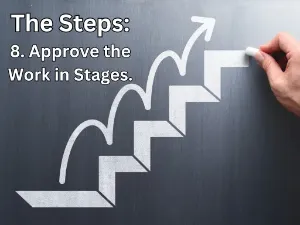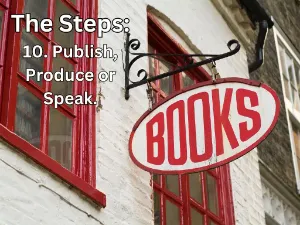A few days ago, my partner suggested that I do a blog post about President Barack Obama’s speech at the 2016 Democratic National Convention. It was a riveting speech. I watched every second of it. What he had in mind was the importance of quality speechwriting.
I thought about that for a while. The problem with Obama and his speech is that his great style, polished, melodic and powerful delivery of the words is hard to separate from the words themselves. An ordinary speech delivered by a very skilled orator like Obama will sound a lot better than an excellent speech delivered by someone who trips over the words, puts emphasis in the wrong places, and so on.
Finally, I texted him and said Republican nominee Donald Trump would be the better subject to discuss. Trump has a distracting, rambling, repetitive manner of speaking that drives me straight up the wall.
I’m not gonna get into politics here, this is just a discussion of speechwriting and delivery.
There’s no point in analyzing Obama. The man’s speeches have the structure, cadence and emphasis that, to me, seems to trace directly to skilled Sunday sermons in predominantly black churches. Who can argue with that kind of brilliant oratory? Certainly not me.
But Trump? First of all, Trump is all about sales. He’s the guy who tells you what the situation is, what you need and pointedly (with his finger poking holes in your chest) tells you that he’s the one who has all the answers. Trump could sell houses or cars. He has a powerful presence that overwhelms people, as some 16 contenders for the GOP nomination discovered. He relies on that presence to convince his audience.
At rallies, the Republican National Convention and at press conferences, Trump makes an assertion then restates it several times in slightly different ways for emphasis. Then he links that assertion to others. He also attempts to run out the clock. Underlying his words are few (if any) facts but he knows if he keeps talking with drama and gravitas, the cameras stay on.
Trump needs to convince his audience that he knows more, and is smarter than, everyone else. He needs you to accept his superiority, believe his assertions, throws in dire but vague predictions or warnings to generate fear, and makes up sources (we know that because he does it often and never identifies the sources). He depends upon sheer force of personality to lend weight to his words. Trump is selling himself personally, not proposing or discussing public policy and not explaining anything. Do you need an example?
This paragraph is from ABC News today:
“I think I have a great temperament, I have a temperament where I know how to win,” Trump said. “She (Clinton) doesn’t know how to win, she’s not a winner. She doesn’t know how to win. And this country, if they choose her, this country will not be in good shape.”
I react to that in much the same manner as when somebody plays a badly out-of-tune piano.
No speechwriter in his or her right mind would write that. It won’t work for him long term. He engages in these unscripted, awkward, repetitive, meaningless rants at political rallies. Crowds show up for the drama of his arrival with the plane or helicopter in the background. They listen for a while, realize he incoherently rambles and repeats himself, realize he’s boring, then they go home.
This is about politics. Governance. He says he wants to be president. People need to know what he plans to do, but what he does is appeal only to emotions, primarily fear and anger. He doesn’t tell the audience anything beyond: “I’m the only one who can do it. Trust me.”
Seriously? If he has a professional speechwriter on staff, he’d better pay strict attention to that person. What he’s doing now will be political suicide for both him and the Republican Party.













